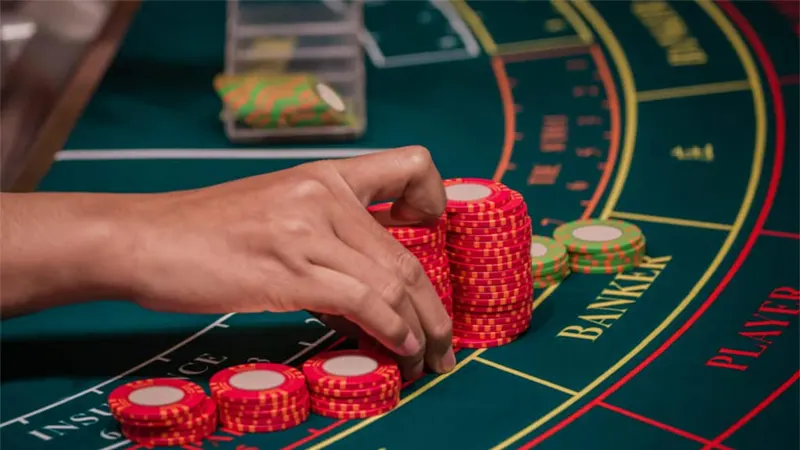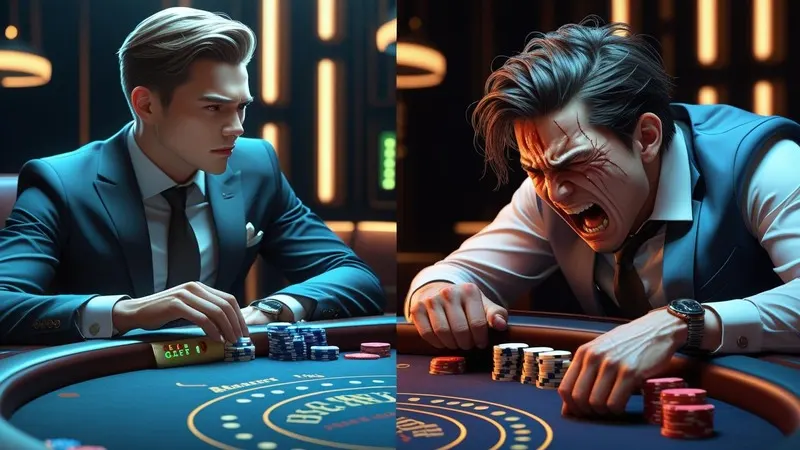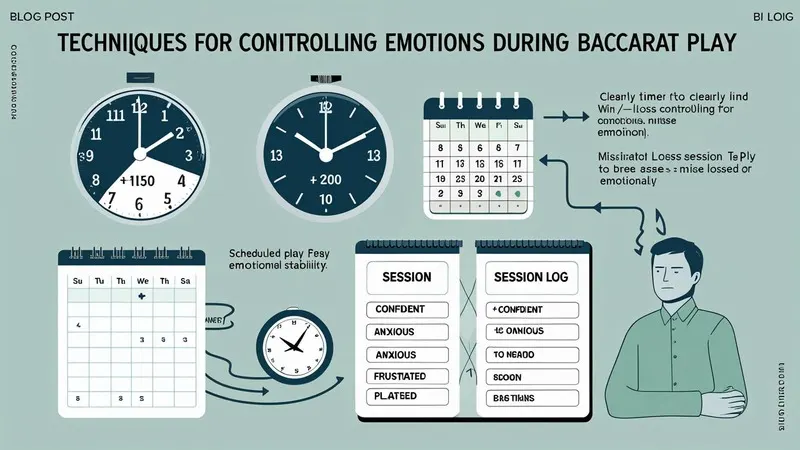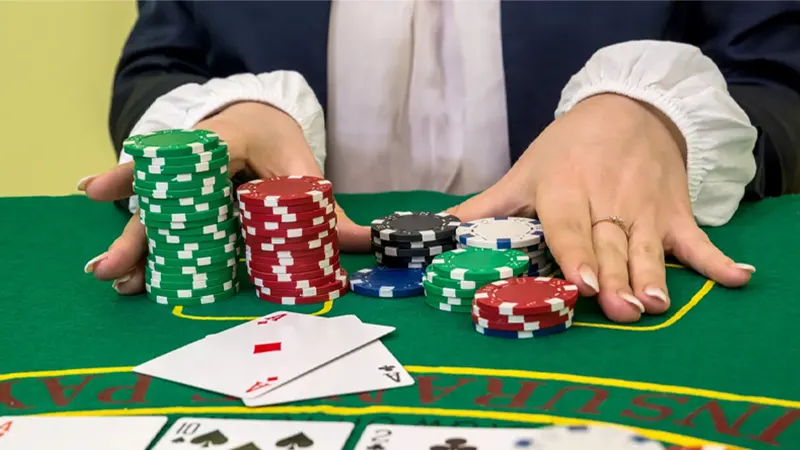Understanding and managing your psychological state while playing Baccarat is perhaps more important than mastering any betting strategy. This comprehensive guide will analyze the psychology behind Baccarat play, identify dangerous emotional patterns that can lead to account depletion, and provide practical techniques for controlling emotions and avoiding the destructive chase-loss mentality when playing at 91 Club. Whether you’re a beginner or experienced player, developing psychological discipline will significantly impact your gaming outcomes and overall experience.
Common Psychological Patterns in Baccarat
Greed During Winning Streaks
The human mind experiences predictable emotional responses during gambling, and Baccarat is no exception. Understanding these psychological patterns is the first step toward controlling them effectively.
Greed during winning streaks represents one of the most dangerous emotional states for Baccarat players. When experiencing a series of successful bets, players often develop an inflated sense of confidence and begin increasing their stakes dramatically. This “hot streak” mentality leads them to believe they’ve discovered some pattern or developed special insight into the game’s flow. The euphoria of winning can cloud judgment just as severely as the frustration of losing, causing players to abandon their predetermined betting strategies and risk larger portions of their bankroll on single hands.
Anger and Frustration After Losses
Anger and frustration following losses create equally destructive patterns. When faced with unexpected defeats, especially after what seemed like sure wins, players frequently react with emotional betting decisions. This anger manifests as aggressive stake increases, abandonment of systematic approaches, and desperate attempts to immediately recover losses through high-risk plays. The emotional response overrides rational decision-making, transforming disciplined players into reckless gamblers.

The Illusion of Control
The illusion of control presents another significant psychological trap. Many players convince themselves they can “read” Baccarat patterns or predict outcomes based on previous results. This false confidence leads to intuitive betting rather than strategic play, with decisions based on feelings rather than mathematical probability. Players begin trusting their “instincts” over proven strategies, often with disastrous financial consequences.
The Loss-Chasing Mentality
Perhaps most destructive is the “recover losses at any cost” mentality. This psychological state drives players to chase their losses relentlessly, convinced that the next hand will restore their fortunes. The fear of accepting a loss becomes so overwhelming that rational exit strategies are abandoned entirely, leading to progressively larger bets and deeper financial holes.
Why Emotional Loss of Control Leads to Financial Losses
Emotional instability isn’t just a side effect of gambling—it’s often the main driver of financial losses in Baccarat. When players let their emotions take over, they abandon the very principles that protect their bankroll and maximize their odds. Below are the key ways emotional breakdowns translate directly into losing money.
Loss of Discipline Leads to Strategic Collapse
When emotions run high, discipline disappears. Players who normally stick to Basic Strategy or follow strict bankroll rules begin placing random bets based on gut feeling.
They abandon betting limits, switch strategies mid-game, and override logic with impulsive choices. This instantly increases the house edge and eliminates the long-term edge strategic play provides.
Emotion-Driven Betting Timing Causes Expensive Mistakes
Betting at the wrong time—because of how you feel, not what the game shows—is one of the most damaging habits. A player might bet big simply because they “feel a win coming,” or keep playing when every signal says “walk away,” just to “get even.” These decisions ignore math, ignore patterns, and leave everything to chance.

The Emotional Losing Streak Loop
Once a player starts losing emotionally, it creates a psychological loop:
-
Bad decisions → more losses → stronger emotions → worse decisions. This loop isn’t about bad luck. It’s about bad judgment getting worse with every turn. The longer the loop continues, the harder it is to stop the damage.
The Failure to Stop: Final Stage of Emotional Breakdown
The most financially devastating symptom of emotional loss of control is not knowing when to quit.
-
When winning: they keep playing, thinking the streak will never end.
-
When losing: they chase harder, unable to accept defeat.
Without clear stop-loss and take-profit limits, both wins and losses spiral into eventual collapse. Even lucky sessions become meaningless when profits aren’t locked in.
Techniques for Controlling Emotions During Baccarat Play
Effective emotional control begins before you place your first bet. Establishing clear profit and loss limits provides an objective framework that operates independently of your emotional state during play. Before starting any session, determine exactly how much profit would constitute a successful session and how much loss you can comfortably accept. These numbers should be realistic and based on your overall financial situation, not your hopes or fears about particular sessions.
For example, if you begin with a $500 bankroll, you might set a profit target of $150 and a maximum loss limit of $200. The moment you reach either threshold, you stop playing immediately, regardless of how you feel about current trends or your confidence in upcoming hands. This mechanical approach removes emotional decision-making from the most critical moments of your gaming session.

Timing your play according to predetermined schedules rather than emotional impulses creates another layer of protection. Never play Baccarat when you’re experiencing strong emotions unrelated to the game, such as work stress, relationship problems, or financial anxiety. These external pressures amplify the emotional intensity of wins and losses, making rational decision-making nearly impossible. Schedule your gaming sessions for times when you feel mentally clear and emotionally stable.
Maintaining detailed records of your play serves multiple purposes beyond simple financial tracking. Document not just your wins and losses, but also your emotional state during different parts of each session. Note when you felt confident, anxious, frustrated, or excited, and correlate these feelings with your decision-making quality. Over time, you’ll identify emotional patterns that precede poor choices, allowing you to recognize and interrupt these cycles before they cause damage.
Developing automatic pause reflexes provides crucial circuit breakers during intense moments. Train yourself to take a three-minute break after any sequence of three consecutive losses, regardless of your overall session performance. Similarly, pause after any unusually large win to reassess your emotional state and confirm your next moves align with your original strategy. These brief interruptions allow rational thinking to reassert itself before emotional momentum carries you into poor decisions.
Strategies for Avoiding Loss-Chasing Psychology
Understanding the true nature of losses in Baccarat forms the foundation for avoiding destructive chase behaviors. Temporary losses are an inevitable and normal part of any gambling activity, not personal failures that demand immediate correction. The key insight is that recovering from losses doesn’t require winning them back immediately in subsequent hands. Long-term success comes from consistent adherence to sound strategy over many sessions, not from dramatic recovery attempts in single sessions.
Recognize the Dangers of Progressive Betting While Emotional
The temptation to employ progressive betting systems like Martingale becomes particularly dangerous when combined with emotional distress. While mathematical progression can work under ideal conditions with unlimited bankroll and no betting limits, these conditions never exist in reality. When you’re already emotionally compromised by recent losses, aggressive betting progressions become pathways to catastrophic financial damage rather than recovery tools.

Segment Your Bankroll to Reduce Impulsive Chasing
Bankroll segmentation provides practical protection against loss-chasing impulses. Divide your total gambling budget into multiple smaller sessions rather than treating it as one large sum. If you have $1,000 available for Baccarat, consider it as five separate $200 sessions rather than one $1,000 session. When you lose a single session’s allocation, take a substantial break before beginning the next session. This cooling-off period allows emotions to settle and perspective to return.
Shift Focus to Long-Term Strategy, Not Instant Recovery
The most powerful psychological tool is shifting your focus from short-term recovery to long-term consistency. Remind yourself regularly that Baccarat success is measured across dozens or hundreds of sessions, not individual hands or single gaming periods. A loss in today’s session doesn’t require correction today; it simply represents one data point in a much larger pattern. This perspective reduces the emotional urgency that drives destructive chase behaviors.
Benefits of Strong Psychological Control at 91 Club
The online environment at 91 Club offers unique advantages for maintaining emotional control that aren’t available in traditional casino settings. The absence of social pressure from other players, dealers, or observers allows you to focus entirely on your own decision-making process without external emotional influences. You can take as much time as needed between hands to ensure each decision aligns with your strategy rather than your momentary feelings.
The digital interface provides excellent tools for self-monitoring and control. Unlike physical casinos where tracking your performance requires manual record-keeping, 91 Club’s system automatically maintains detailed histories of your play. You can easily review your session patterns, identify emotional decision points, and analyze the correlation between your psychological state and your results. This data becomes invaluable for improving your emotional discipline over time.
The ability to pause or exit games instantly provides crucial protection during emotional moments. If you recognize signs of losing control, you can immediately stop playing without the social awkwardness of leaving a physical table or the pressure to continue for appearance’s sake. This instant accessibility to your exit strategy makes it much easier to implement the disciplinary measures necessary for long-term success.
Master Your Psychology to Master Baccarat
The greatest opponent in Baccarat isn’t the house edge or mathematical probability – it’s the emotional turbulence within your own mind. The vast majority of players who experience significant losses don’t fail because they lack understanding of strategy or game mechanics, but because they allow emotions to override rational decision-making at crucial moments. The heated frustration of consecutive losses, the intoxicating confidence of winning streaks, and the desperate urgency to recover from setbacks create a perfect storm of poor judgment that destroys even the most knowledgeable players. Success in Baccarat requires treating it as a long-term endeavor governed by consistent discipline rather than a series of emotional battles to be won or lost in individual sessions.
When you develop the ability to remain psychologically stable regardless of short-term results, you automatically gain control over your financial outcomes. The most beautiful Baccarat pattern in the world becomes meaningless if you lack the emotional stability to capitalize on it properly, while even basic strategies become highly effective when applied with unwavering psychological discipline. Remember that victory in Baccarat doesn’t come from predicting the next card or finding the perfect betting system – it comes from maintaining a clear, rational mind that can execute sound decisions consistently over time. Master your emotions first, and mastering the game will follow naturally.

